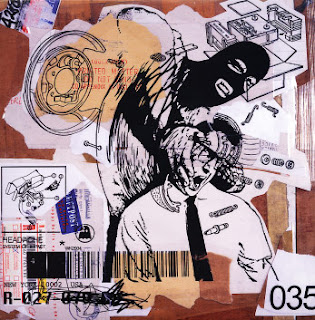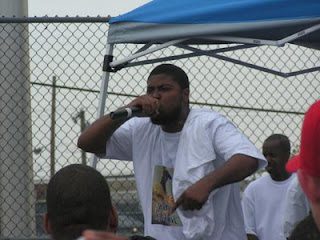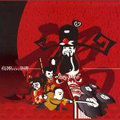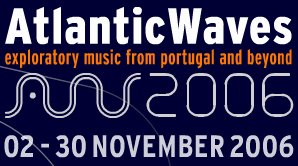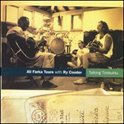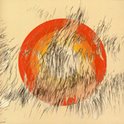
Ali Farka Touré was a farmer who played music, and not the other way around. He died earlier this month, on March 7th, from bone cancer. He was 66.
"In the West, perhaps this music is just entertainment and I don’t expect people to understand," he once said.
And they never did, even though Touré received two Grammy awards, one for his collaboration with Ry Cooder on 1994’s
Talking Timbuktu, the other for last year’s
In the Heart of the Moon, recorded with Toumani Diabaté.
Ali Farka Touré was born in Gourmararusse (in the Timbuktu region), Mali, in 1939, into the noble Sorhai family. In Malian society the trade of a musician is usually inherited, and so Touré’s family, who were not professional performers, disapproved of his taking up music. But determined as he was, he began playing the guitar at the age of ten and the following year began playing a single string African guitar, the
gurkel, known for its power to draw out spirits. Ali also taught himself the
njarka, a single string fiddle that would later become a hallmark of his performances.
It was not until 1956, at the age of seventeen, that Touré truly comprehended his musical mission after seeing Keita Fodeba, a Guinean guitarist, perform live in Bamako. Later on, during a return visit to Bamako, Otis Redding and John Lee Hooker introduced Touré to African-American music. Legend has it that the young Malian first thought Hooker to be playing Malian music, but then realized that the soulful American music had deep African roots. When Mali gained independence from France in September of 1960, the new government created a group called Troupe 117, with which Ali sang, composed and performed as an emissary of the state.
Until 1980 Touré toiled as a sound engineer, always saving his money in hopes of becoming a farmer. Thirty years ago, in 1976, Touré's recording career began in France, but complacent Western ears never paid much attention. Back in Africa, he began adapting traditional songs and rhythms from Mali’s culture into songs written in ten languages. But while touring in the black continent, and occasionally in America and Europe, Touré missed the quiet life of his home and his crops.
During the 1980s Ali Farka Touré remained an obscure player in the background of world music while other African artists, notably Senegal’s Youssou N’Dour – who later recorded the "7 Seconds" hit with Neneh Cherry – and Malian singer Salif Keita, were slowly coming into the limelight. In 1990, Touré abandoned music all-together in order to fully devote his time to the farm in Timbutku, but was eventually coaxed out of retirement by his producer and, two years later, the Malian farmer was recording the Grammy-winning
Talking Timbuktu with Ry Cooder. Cooder, the American guitarist known as a member of Captain Beefheart’s Magic Band, had already composed the soundtracks to more than 20 films, including Wim Wenders’
Paris, Texas and
The End of Violence.
In this collaborative effort, the bluesy kinship between Touré and Cooder is so strong that it seems to dangle from the studio’s ceiling like a psychedelic snarl that then engulfs the rich and rhythmical stringed playing of Touré. Despite the success achieved by the collaboration, the simple man from Timbutku was still fighting off the music industry, unwilling to leave his rice farm in Mali for the length of time required to record an album. Nick Gold, Touré's producer, found away around his artist's domestic duties by setting up recording equipment in an abandoned brick hall in nearby Niafunké, Mali, operating the makeshift studio with portable equipment and powering it with gasoline generators in lieu of the power lines that the Malian countryside simply did not have.
Before he was appointed mayor of the Niafunké region, tackling the ongoing malaria problem, addressing pollution in the region, and establishing a tree-planting project were amongst Ali’s election promises. Finally in 2004, Nick Gold recorded Touré’s first album in five years. Gold invited Toumani Diabaté – the irrefutable prince of the
kora (a 21-string harp-flute from West Africa) – for one track, the traditional and beautiful Malian song, "Kaira". Without rehearsing, the duo improvised and the collaboration was so vibrant that Gold suggested they recorded an entire album together.
And thus
In the Heart of the Moon was born. The first of a trilogy of albums Nick Gold’s label recorded at the Hotel Mande, the record includes inputs from Ry Cooder on guitar and piano, Sekou Kante and Cachaíto López on bass, and Joachim Cooder and Olalekan Babalola on percussion. The producer took his World Circuit team and their longtime engineering collaborator Jerry Boys (who also worked for
Buena Vista Social Club) to Bamako to record Touré’s second Grammy-winning album.
In the Heart of the Moon was finished in three two-hour sessions, put to tape in an inspiring place overlooking the Niger River. The most fascinating thing about the album is its spontaneity - only one song required a second take, and then only because it had been interrupted by a rainstorm.
Ali Farka Touré simultaneously had an introverted and a communal approach to music. He seemed to have taken on the flavour of his roots and the tribal music of Mali, yet somehow come out with a new style all his own, an affected playing and singing that will forever comfort the hearts of strangers. At first, we are all strangers to Touré's music, but one listen has the power to transport us into an energy field, allowing us to become part of the experience.
Despite his remarkable flavor, Ali Farka Touré remains largely unknown outside of scholastic circles. Even as his death made a slight stir in the ocean of world news earlier this month, his name continued its slide into obscurity, and his legacy is overshadowed by the simple fact that the masses will someday never again hear Touré's name. They will never know that Touré made strings sound like fresh blood running through the world’s veins. That his music is the warm African sound, the big sound out of the guitar and out of the
njarka.
May you forever rest in peace, Ali!
Now the farm is all yours.
SEE ALSO:
Afropop.org’s feature on Ali Farka Touré’s death.
SEE ALSO:
Wikipedia’s entry on "the African John Lee Hooker".
http://www.lostatsea.net/feature.phtml?fid=4754769954425e0ae92079



